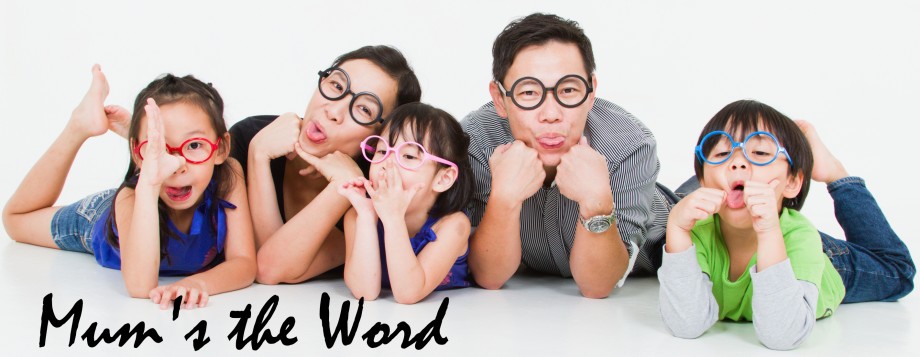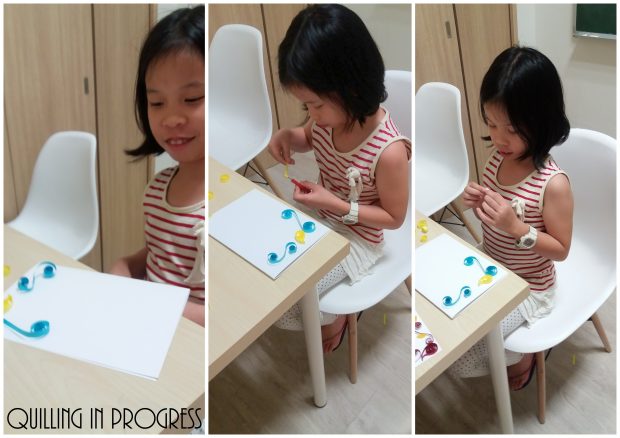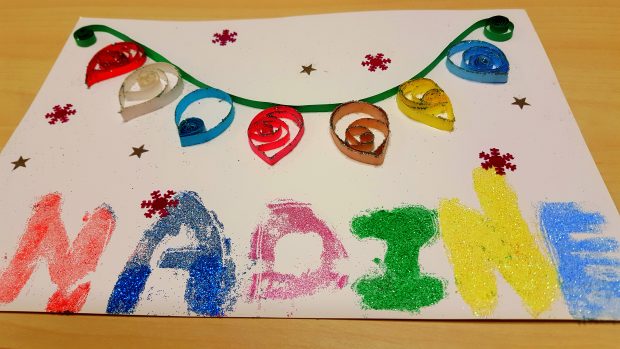Therapy 101: How to learn Academics when there’s Basic Life Skills to cover?
Nadine started various forms of therapy since she was 5. As soon as she was diagnosed with dyslexia and cognitive development issues, we got her on Speech Therapy–to aid her in expressing herself, Physiotherapy–to keep her low tone muscles active, and keep her brains active (layman’s term!), Cognitive Therapy–to teach her how to process pictures she sees, words she read and put into meaningful structures, Reading Classes–to help her cope with the dyslexia so she can read and write and of course, we had her try Art and Gym to make things fun.
All these therapy sessions were very helpful. They definitely taught Nadine how to cope with many basics, esp those that we tend to take for granted. Alas, at the start of P2, I begin to realise, I can’t go on this way. I mean, she does need all these therapy sessions to keep up with basic learning abilities. But what about what she learns in school?
You see, my two elder kids have tuition for Math and Chinese. I remember how challenging it was to teach them how to solve problem sums using models… and how I needed to explain fractions and later common denominators…. And I’ve not touched that at all with Nadine! I mean, I don’t have time to go into all that! She’s already so busy learning how to make sense of a sentence, how to recognise key words in a question etc… when she’s finally not in therapy, I just let her play her toys and doodle with art. BUT, it hit me, all my three kids will be doing that same PSLE paper when they are 12! Nadine is not getting a simpler paper, nor is she having a shortened syllabus. It’s the same paper! She will have to do those same Models for Math, Fill in those blanks for English, Memorise those definitions for Science. AHHHHHHHH!!!!!
It hit me. There is a very real struggle that Nadine would potentially face as the academic pressure increases. And trust me, I’m no Tiger Mum with her. But we can’t ignore the fact that by age 12, all kids in Singapore must know how to tell time, how to do reported speech, how to explain Magnets etc. And I was stuck. I didn’t know how to squeeze in the time to teach her that. And even if there was time, I didn’t know how she can handle doing so MUCH in a day.
That’s when a good friend introduced me to Educational Therapy. According to Wikipedia, this is, “a form of therapy used to treat individuals with learning differences, disabilities, and challenges. This form of therapy offers a wide range of intensive interventions that are designed to remediate learning problems. These interventions are individualized and unique to the specific learner.” And so we started to streamline her therapies.
So since end 2015, she started Educational Therapy at Alpha & Omega and has been coping very well with school, friends and daily functioning! I shared how it was when she first started with Educational Therapy and how she coped after one term of therapy sessions. It’s been another 20 sessions, and I must say I am so so happy with how things have worked out! Previously, I knew she was on the right track with Alpha & Omega… but that was P1. The educational pressures have increased with P2. So how did the year go?
Nadine is now a more confident student when it comes to handling school work. It no longer turns her off, but she has learnt strategies how to work on any tough Math or English questions. Do note, these are strategies and not a solution to the tough questions. I still need to be next to her to teach her the fractions and life cycle, but her entire attitude towards these foreign topics are now so positive and she actually is looking forward to tackle them! (I don’t even get this with Nicole and Nathan!)
In fact, her teachers in school also said that Nadine is now so fun loving, she loves learning and is not afraid of what lies ahead. They are happy she is coping well and has confidence in tackling the academics and social life. I am so thankful that her confidence has improved so much! Cos that was one of my greatest concerns, esp with the numerous therapies she has gone for since young!
Does Nadine need regular tuition to help with academics? Possibly, to understand the tougher concepts. But she doesn’t need to start from scratch. She is now equipped with strategies to understand and cope in school. Isn’t that great!
I had the opportunity to interview Ramani DeAlwis, the Executive Director of Alpha to Omega, and here’s an excerpt of our session!
Me: Is Alpha to Omega a Tuition Centre?
Ramani: No, we are not a tuition centre. We teach the children how to cope with school by helping them acquire the academic strategies and skills necessary to reach their academic potential and develop the self-confidence to succeed.
Me: Do you have a fixed curriculum?
Ramani: No. All our sessions are one-to-one, and the curriculum is specially curated and tailored to meet each individual child’s needs. Based on the initial diagnostic assessment, we identify the child’s needs and abilities. From there, a specialised curriculum is planned for the child. Our aim is to be a Bridging Curriculum for what they learn in school.
We have programmes for kids who have difficulty reading, or those who cannot keep their focus and attention in school, or those who need problem-solving skills. Everything is dependent on our initial assessment of the child. And when there are kids who have similar difficulties, we put them together for selected lessons to hone their social skills.
Me: Who needs Educational Therapy?
Ramani: Children with special needs, or with any learning difficulties often need Educational Therapy to take them away from the stresses of the academic syllabus, and yet learn these vital skills to understand school work. We have students who are in the mainstream schools and also students in Special Needs schools, and also those who are already out of the school system.
Me: How is Alpha to Omega different from other Educational Therapy centres?
Ramani: We work very closely with the parents and our programmes always include critical thinking and communication. These are essential skills a child needs in any learning environment. We also do very close monitoring of the child’s progress and always look a the child’s academic and social development.
We started a new initiative recently–Peer to Peer learning. This is when a fellow student in the centre teaches other students a skill or art that he/she is proficient is. For this season, one of our students who is excellent in quilling, embarked on one-to-one sessions with the other students. This builds confidence in them, and takes away unnecessary pressure to ‘perform’.
With the rising demand of Special Needs education, we are starting a 5-day a week Early Learning Programme for those ages 2.5 yr old to 6 yr old. Depending on the child’s age, we have programs to develop natural curiosity, motor skills, self esteem, the cognitive process and social skills as well.
And this on top of our popular one to one individualised programme which is what Nadine is on. Based on the child’s needs and abilities, you can find something suitable for the child.
~~~ ~~~ ~~~ ~~~
There ends our interview. Ramani is an experienced educator with special needs children for the last 30 years and she constantly looks out for every child that is in Alpha to Omega, to ensure the lesson plans and activities meet their needs.
If you want more information, do call the centre to find out more!
Alpha To Omega
200 Upper Thomson Road, #01-10
Thomson Imperial Court
Singapore 574424
Tel: +65 9388 0915
This is part of a series I’ve started – Therapy 101, to document Nadine’s developmental struggles and victories, and to journal my own learning experiences as she goes through hers.







